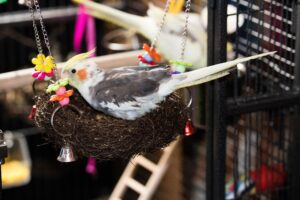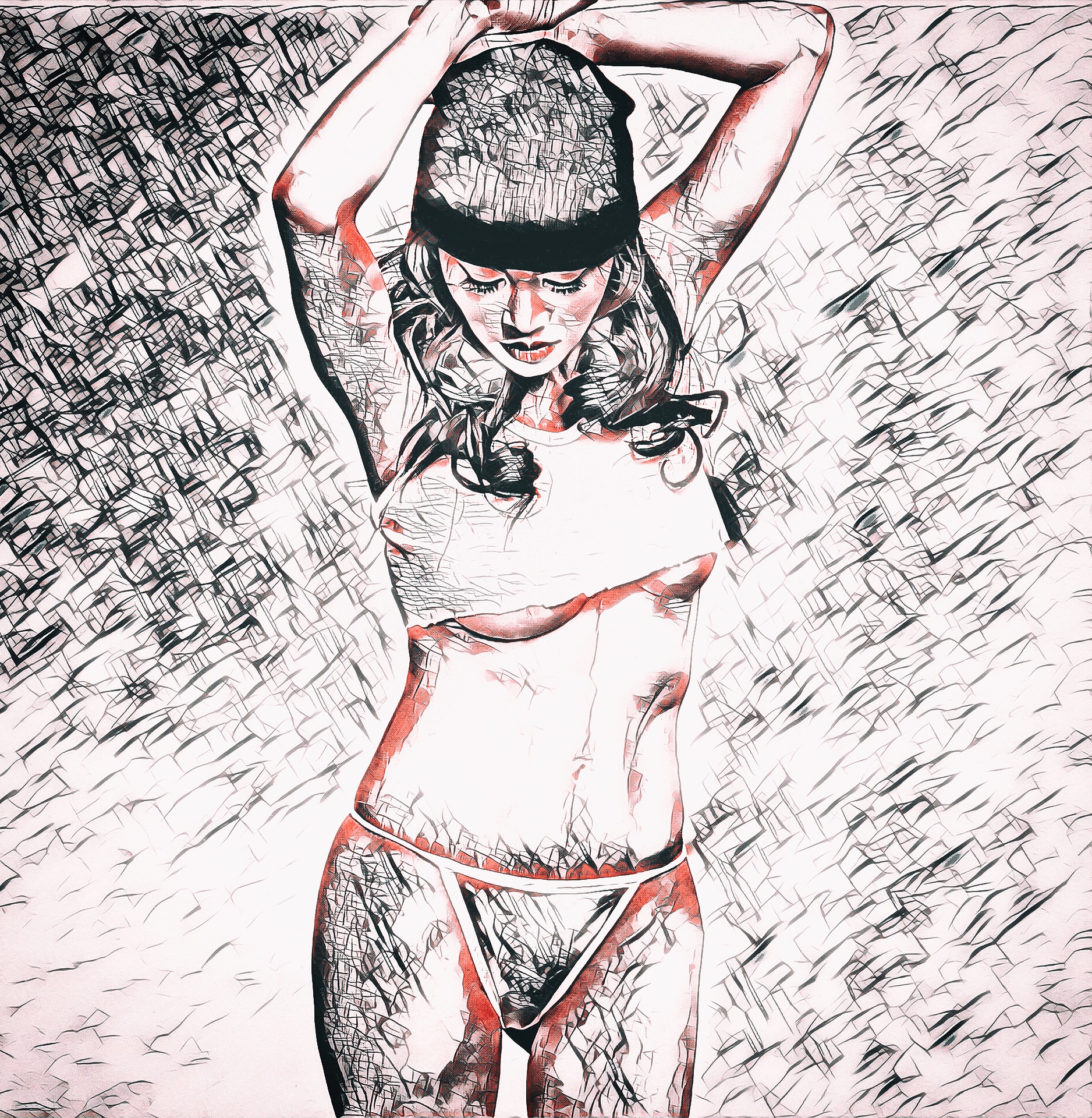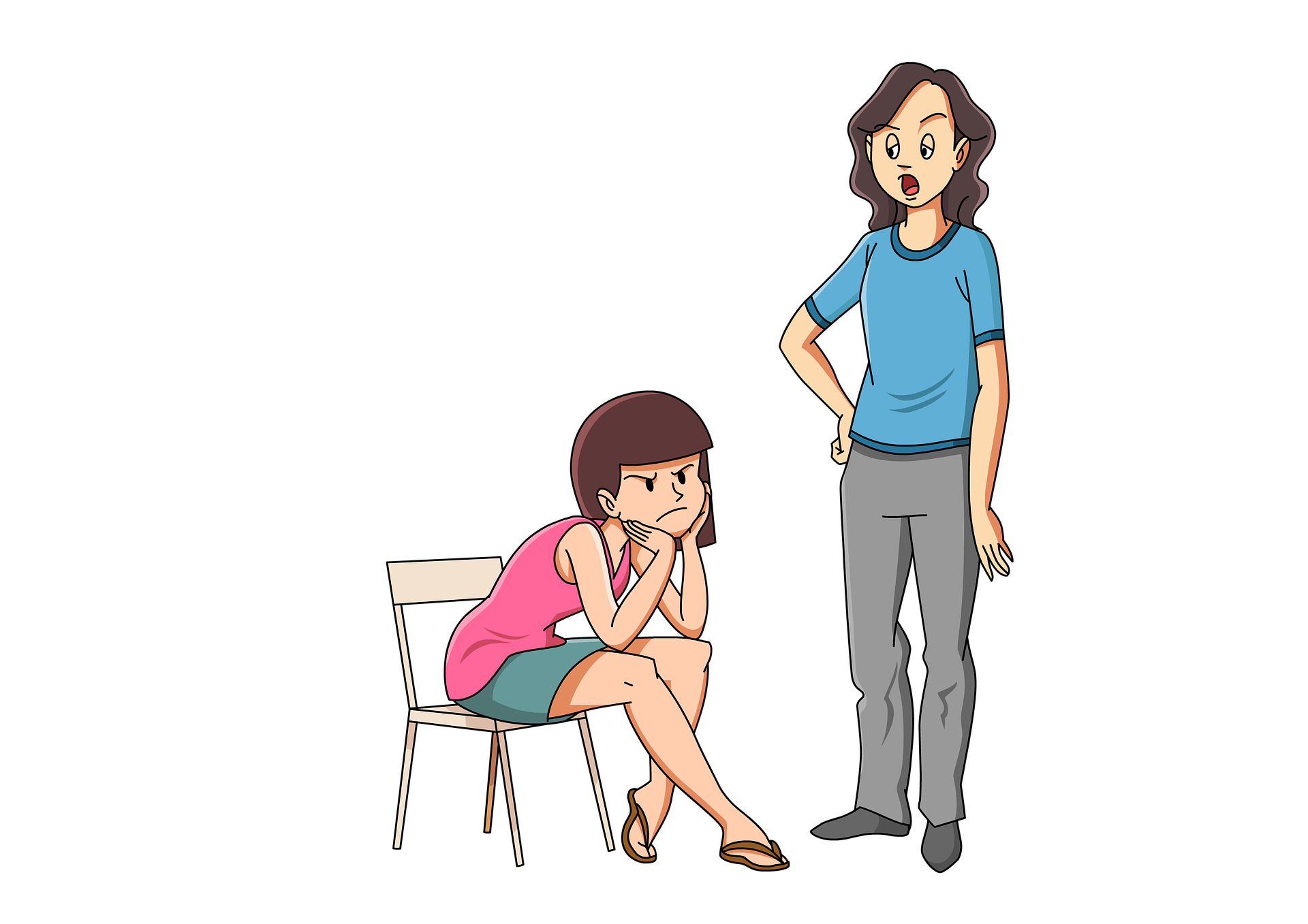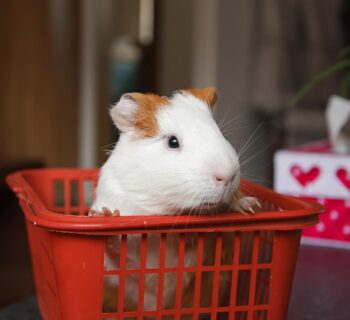 It is the middle of the night, and you are jolted awake by the sound of you bird flailing about in his/her cage. You run to the cage and flip on the light, remove the cover , and find your baby flailing about, scared to death and hyperventilating. Your bird just had a night fright. These are common things with pet birds. While they are common, Night frights need to be taken seriously since they can still be dangerous.
It is the middle of the night, and you are jolted awake by the sound of you bird flailing about in his/her cage. You run to the cage and flip on the light, remove the cover , and find your baby flailing about, scared to death and hyperventilating. Your bird just had a night fright. These are common things with pet birds. While they are common, Night frights need to be taken seriously since they can still be dangerous.
Night Frights are common in cockatiels and other smaller birds. Their night vision is poor. This is a good thing because when you cover them up or turn off the light, it is "sleepy" time. This is bad because now pretty much anything in their cage can set them off. Some people think nightmare wake the birds up and that is what starts the night fright. Others tend to believe that the birds just bump into something (a toy, a perch, the side of the cage), and since they cannot see to identify it, it scares them. As a result the frantic thrashing begins. Now the bird is flailing about, crashing into the sides of the cage, toys, perches, food dishes and in some cases other birds.
Why is this dangerous? Well one, no one likes it when their bird is scared. The bigger issue is that while he or she is trashing about, the bird could hurt his or herself. They could scratch up their face, feet or wings. There is also the concern of them breaking blood feather. Blood Feathers are feathers that are still growing, so they have a blood supply. As the feather matures during the molting process, the blood flow will recede. If the bird breaks a blood feather, this is very dangerous. The bird could bleed out in a very short time. Plus, if you have multiple birds in once cage, the bird having a night fright could now inadvertently hurt the his or her cage mates. Not to mention, sometimes, one bird's night fright came snowball into multiple birds thrashing around.
If your bird does have a night fright, turn on the light and if the cage is covered remove the cover. Gently talk to the bird until he or she stops flailing about. This may take some time. Once the thrashing has stopped, and you have calmed down the bird, then it is time to see if there are any injuries. If your bird is bleeding, gently remove him or her from the cage. Stop the bleeding with "quick stop" powder. If you do not have any of this, flour or corn starch will work just as well. If the blood is coming from a blood feather, you may have to remove the feather if the bleeding will not stop or if the feather is at risk of being bumped again. It do this you will need needle nose pliers or tweezers. Grip the feather close to the skin and gently pull the feather out in the direction it was growing.
In many cases, the bird will just be startled. In those instances, all you need to do is calm the bird down. You can usually do this by sitting or standing next to the cage and talking to the bird. Sometimes they are so shaken up, they need a little more work. In those cases, once the thrashing has stopped and they are calm enough to be handled, you can take them out of the cage and sit with them. Regardless of if they are in or out of the cage, stay with the bird until you know that he or she is ready to go back to sleep and then turn the light back off.
There are no cures for night frights, but you can do things to make them less frequent. The best way to help your bird is to use a night light of some sorts. This way it is still dark enough for them to sleep, but there is usually enough light to keep them from panicking. If you cover the cage, do not cover it completely. Some people suggest playing soft music to soothe the birds at night. This could be an issue if the birds sleep in the same room with you and you are light sleeper.
If your birds sleep in a different room than you do, and you cannot hear them at night, it might be a good idea to get baby monitor. This way you will be able to hear if your bird has a night fright and you will be able to get to him or her in a timely manner. Yes this is a very important thing. There is nothing more heartbreaking than uncovering your bird in the morning, only to discover she had bled out overnight. Any bird can have a night fright, so you just have to keep your ears open. If you know your bird has a history of night frights, be proactive. Yes, I'm not a fan of sleeping with a night light, but I know that if I don't Batty will have more than the occasional night fright. Night Frights put him in danger, and his cage mate Beaker in danger as well. Remember there is no way to totally stop these from happening. However, you can take steps so it does not happen as often.








